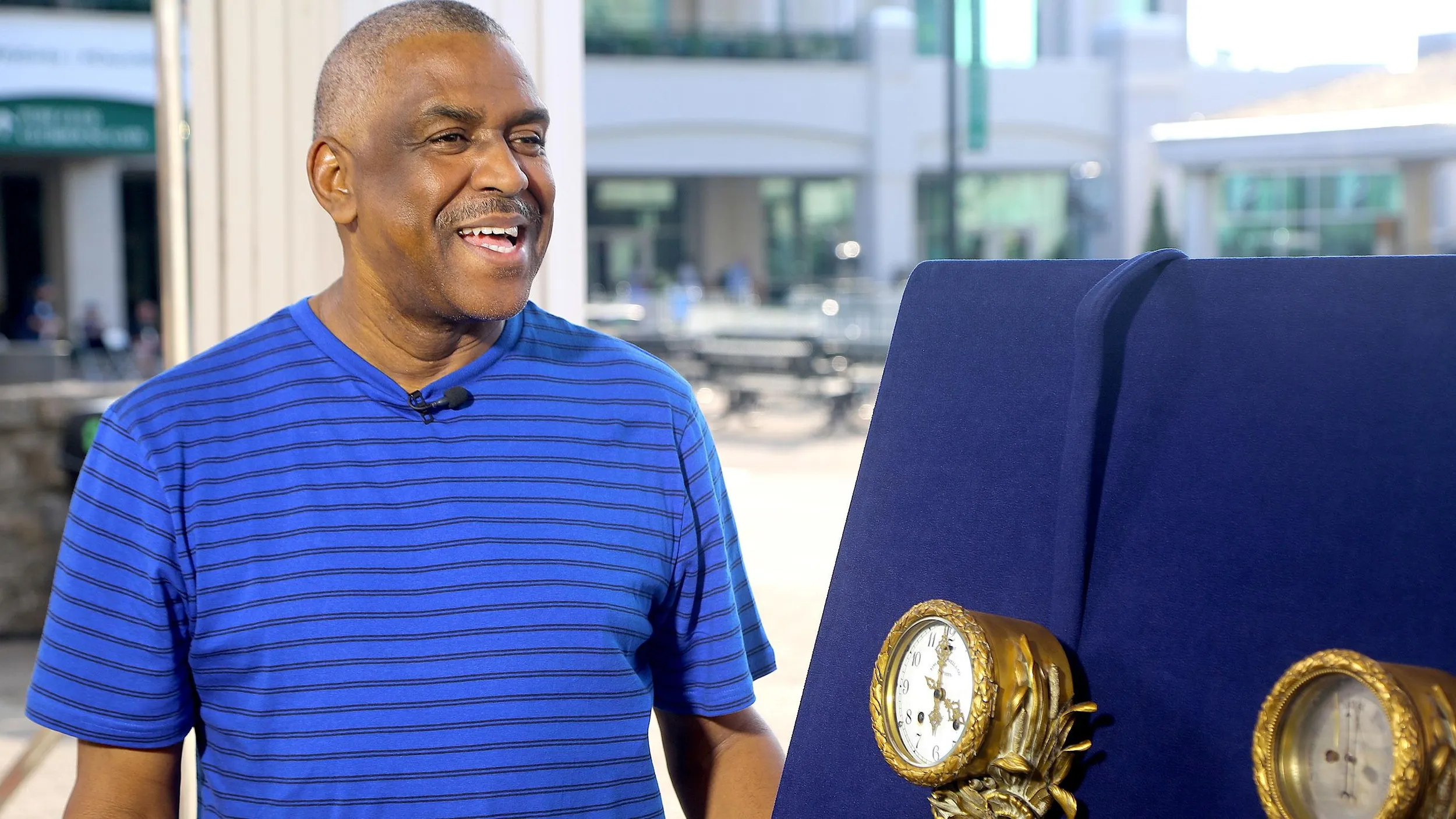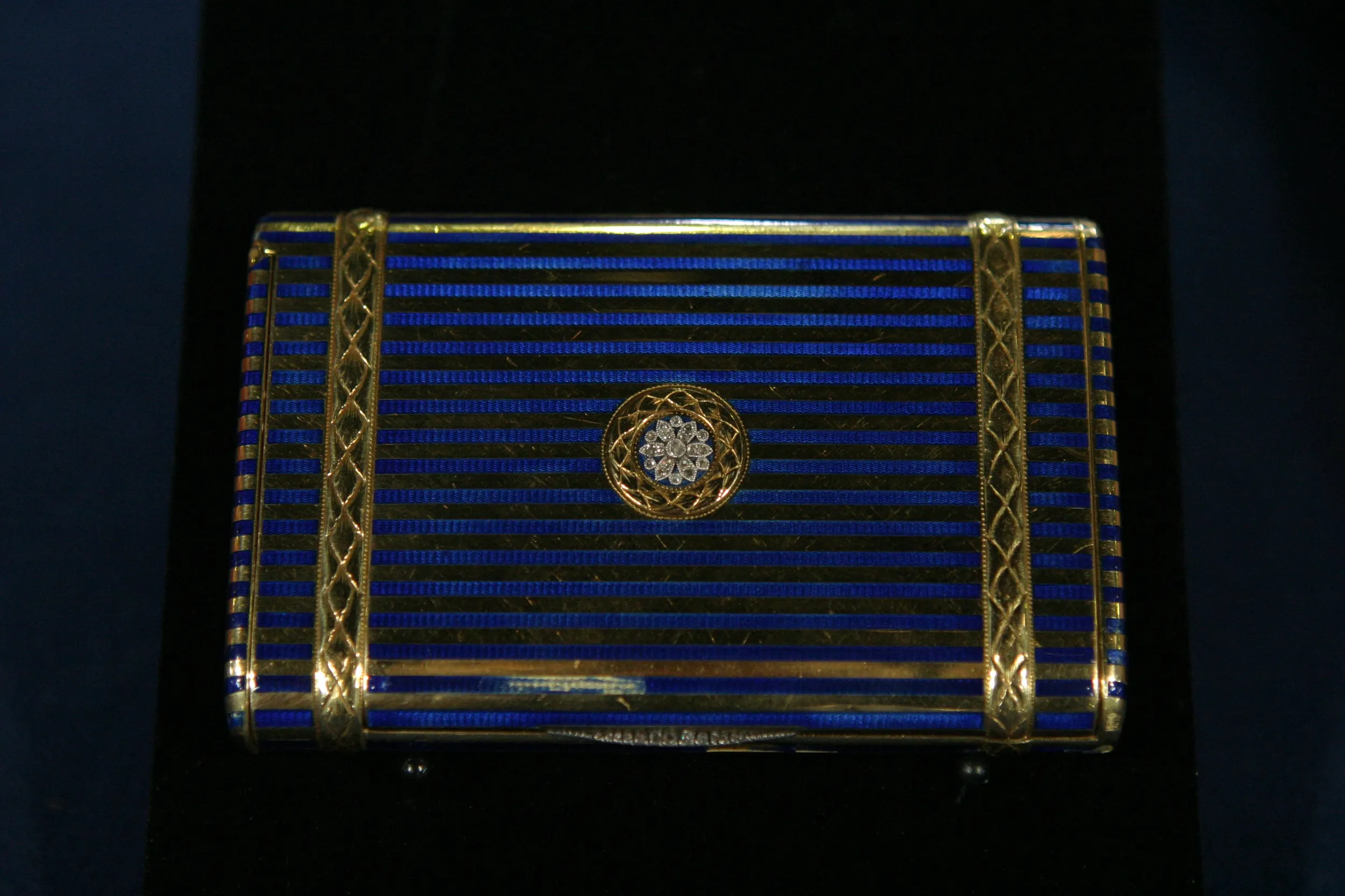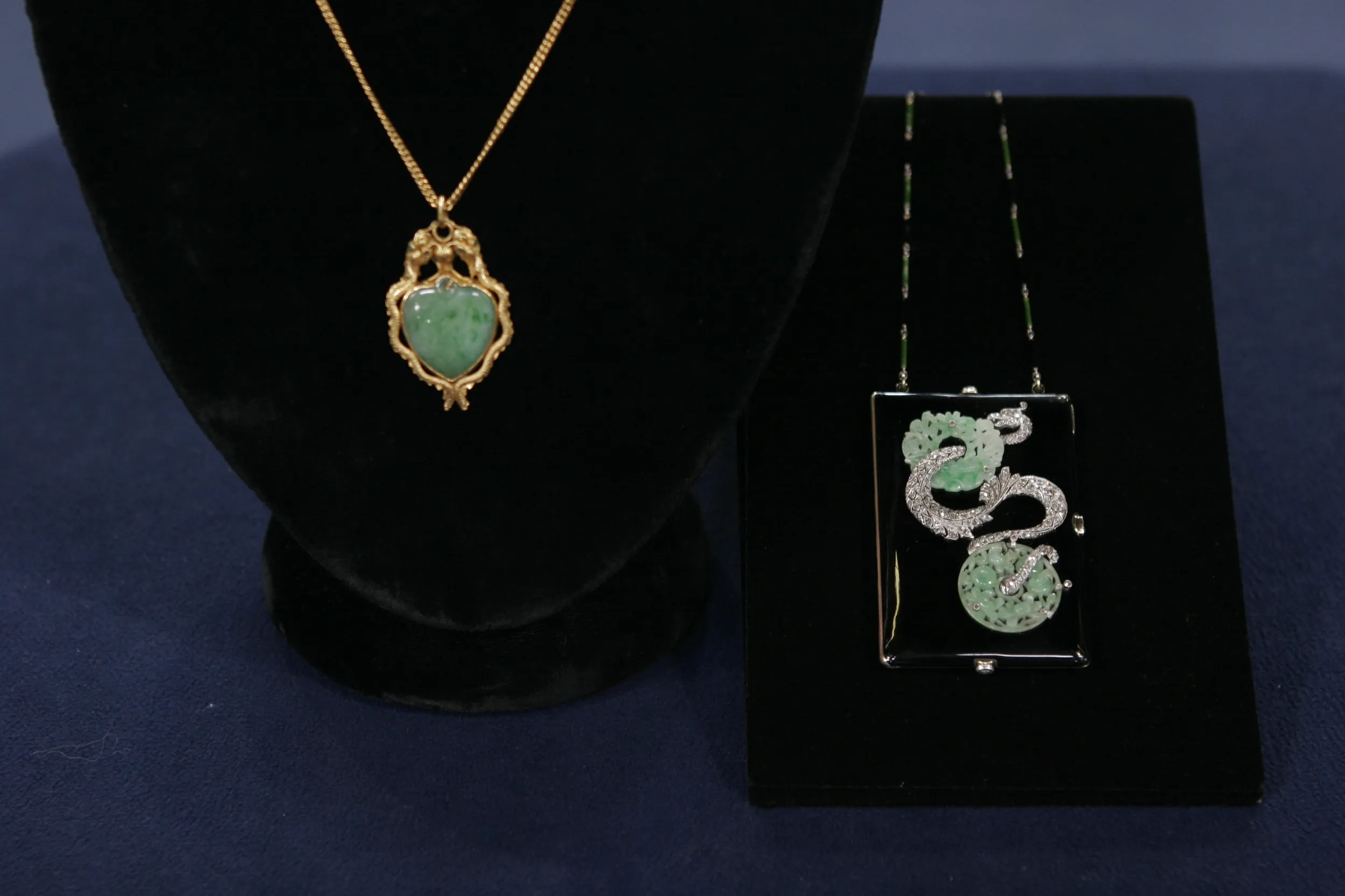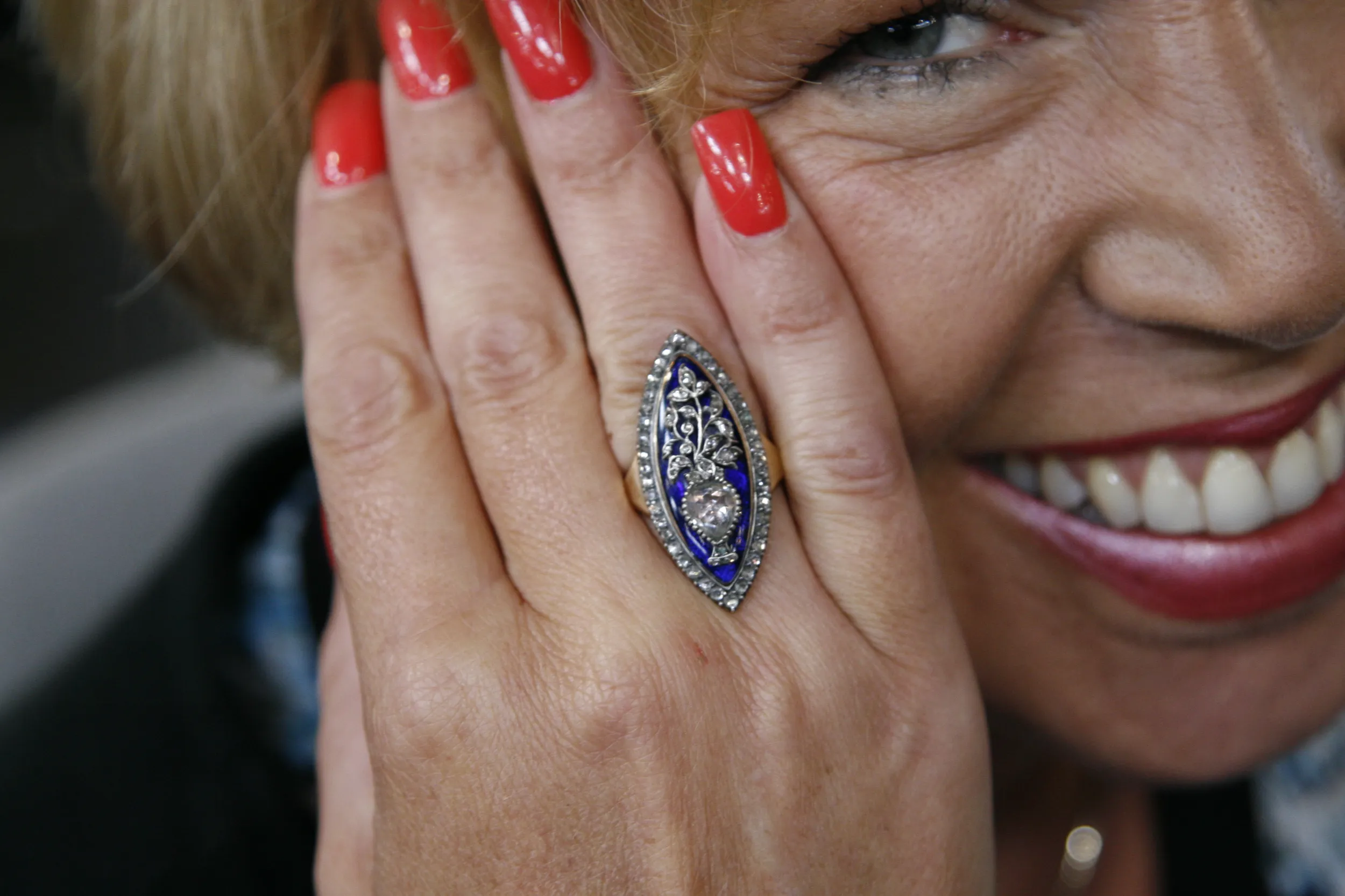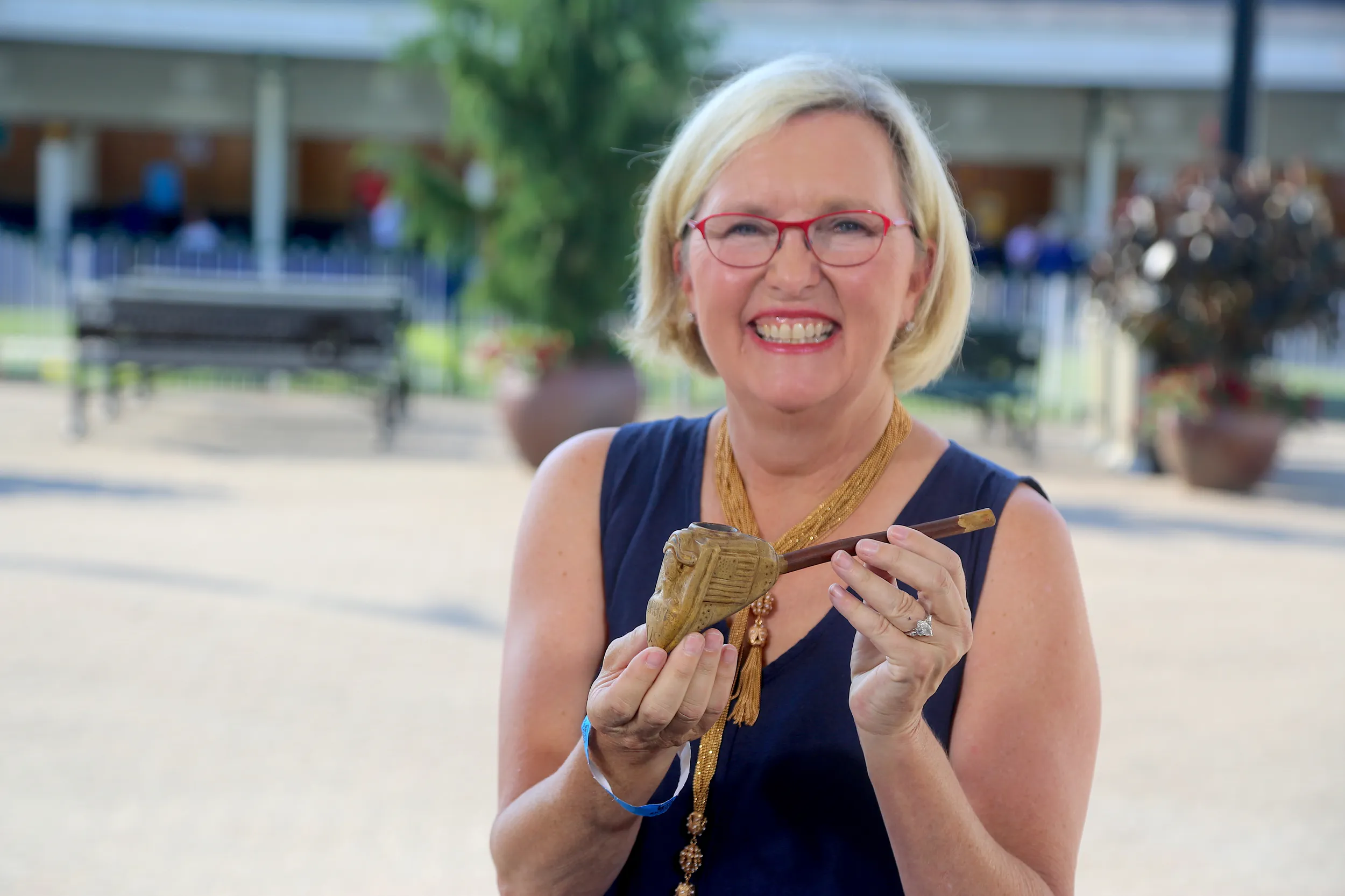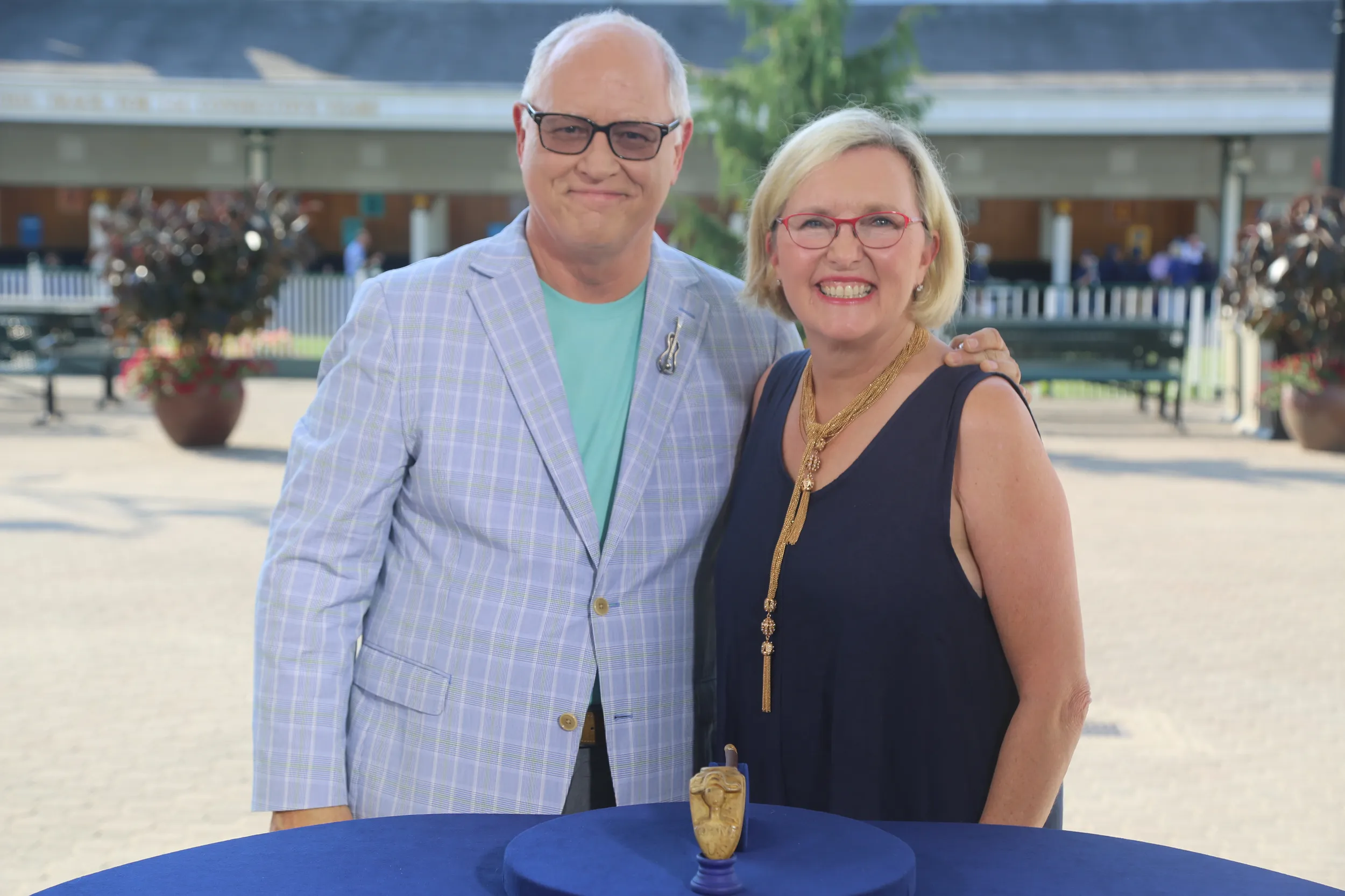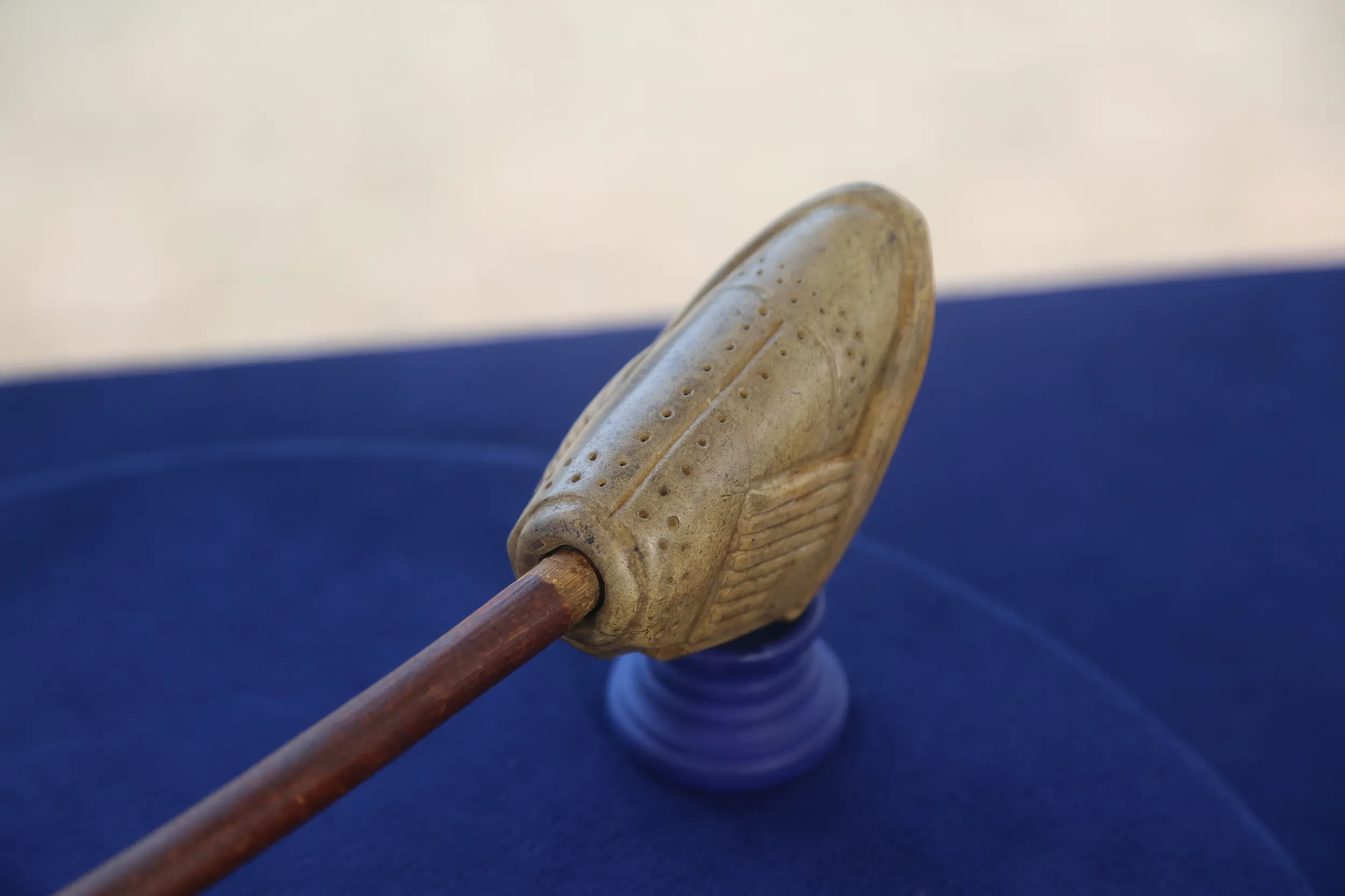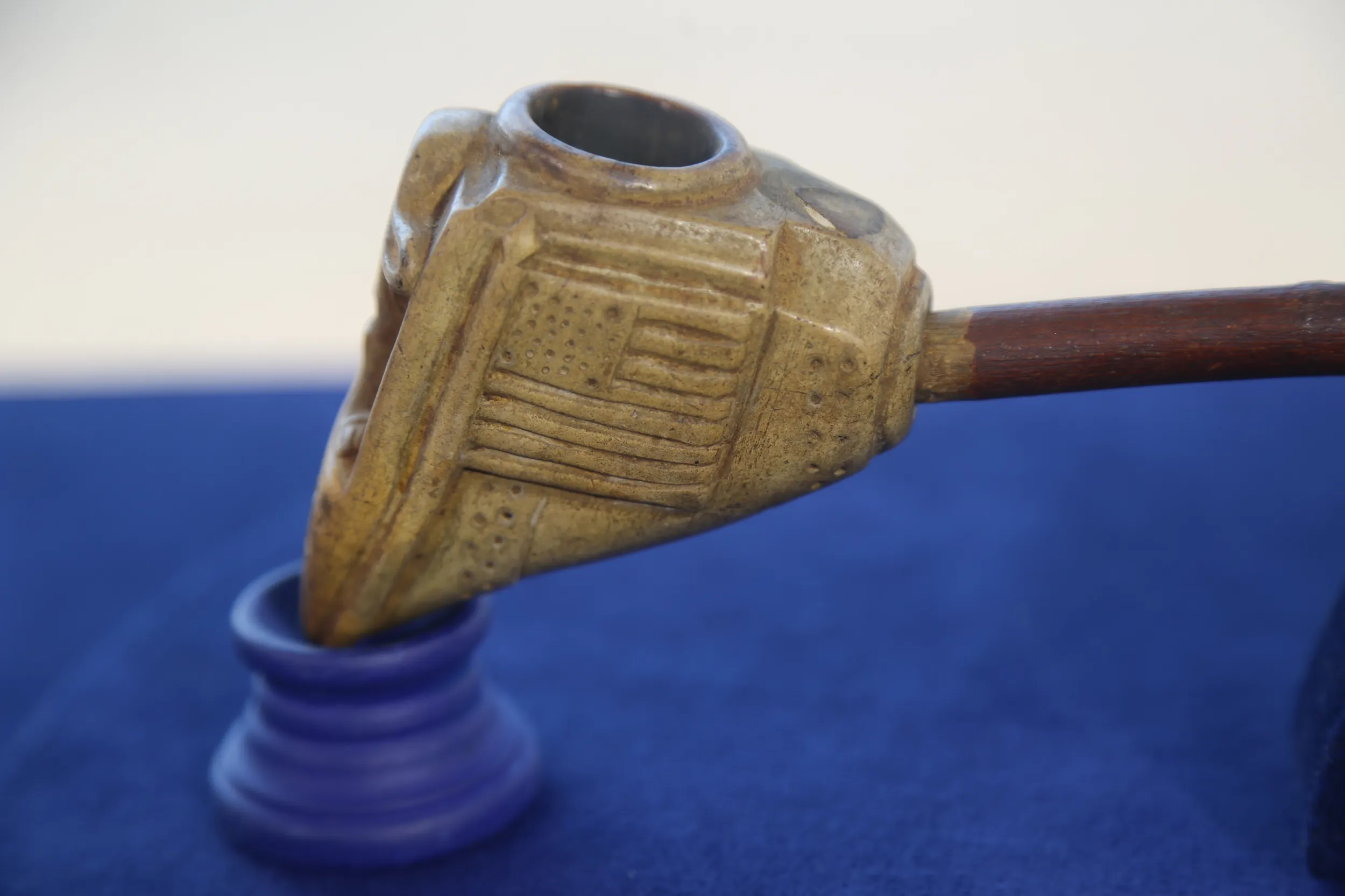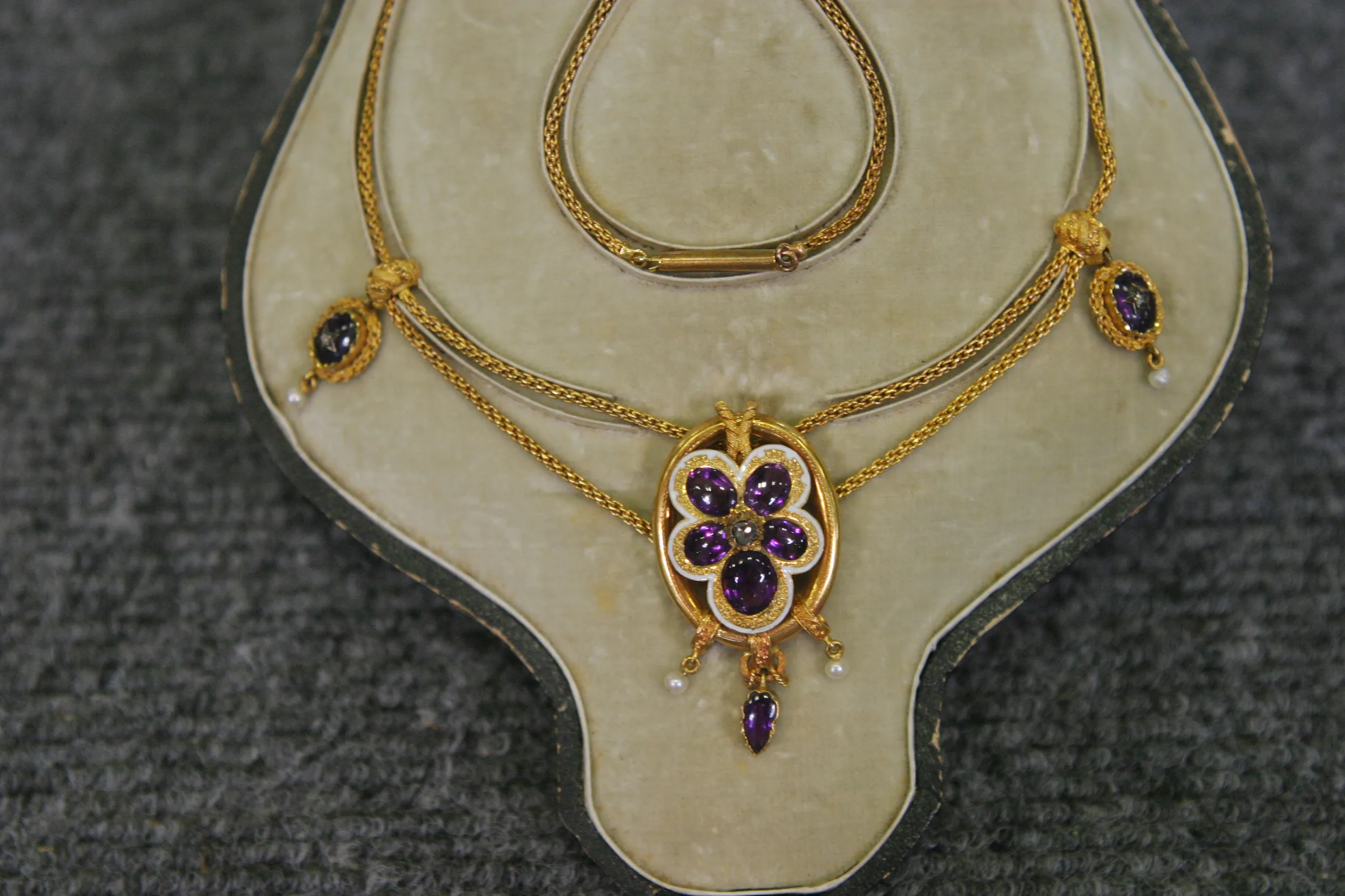GUEST: I'm from Memphis, and we went to an estate sale several years ago. And the house had been in the same family for... ever since the Civil War. And the gentleman that owned the house was a Civil War doctor. It has a name on it, "Grent." So we did a little research and think maybe he was from the Andersonville war camp from the Civil War. So my husband and I wondered, "How in the world did a pipe from maybe Andersonville camp end up in Memphis, Tennessee?" I think maybe the doctor treated him and maybe traded the pipe for payment. That's just a guess, but I don't know.
APPRAISER: And did you get a good deal on it?
GUEST: No, paid a lot of money, I think, for it.
APPRAISER: What did you pay?
GUEST: $600. But it was a gift for my husband. He loves things to do with the Civil War. Anything old. So it was a splurge.
APPRAISER: Well, when you set that thing down on the table, I guess you could tell that I was interested. It gave me a little pitter-patter. This pipe was, is carved out of limestone.
GUEST: Okay.
APPRAISER: And there just happened to be a lot of it around, out in Illinois and St. Louis.
GUEST: Okay.
APPRAISER: And there were two Union prisons there. And there was this group of Confederate carvers who were prisoners there who developed amazing skills carving these pipes.
GUEST: No way.
APPRAISER: In the last five years, there's probably been 20 or 30 pretty amazing pipes carved by Confederate prisoners. And all of them have the images of Jeff Davis or the Palmetto Tree or the Confederate flag and things like that. This pipe was likely carved by a Confederate prisoner of war for a can of peaches or a bag of tobacco. Why would somebody fighting for the South carve something like this? And I wanted to show the front to start with. It's got this guy on there with this weird hat, which you don't think about being from the Civil War. And, you know, you think the name is "Grent," but it's actually "U.S. Grant"...
GUEST: No way!
APPRAISER: ...misspelled. It's U.S. Grant.
GUEST: No way!
APPRAISER: That's a picture of Ulysses Grant, and on the side, he puts American flags. He puts the Union flag on both sides.
GUEST: (laughing)
APPRAISER: I guarantee you that was carved by a Confederate prisoner, and he carved it in exchange for some favor from one of his jailers.
GUEST: Wow.
APPRAISER: It's a rare survivor, and I wanted to put it like this. Look, he made that side of it like a shoe.
GUEST: That's so...
APPRAISER: Did you ever notice that?
GUEST: I have not noticed that, but you're right. I'm so excited, I can't wait.
APPRAISER: So you thought you paid a lot at $600?
GUEST: I did, I have to admit.
APPRAISER: Well, we think you got a pretty good deal. And I think a conservative auction estimate would be $3,000 to $5,000.
GUEST: Yes! (laughing) Oh, I'm very excited by that. That's fabulous-- I can't believe that.
APPRAISER: I hope... Think that'll make your husband happy, too?
GUEST: Yes, he's going to be sad he didn't come with me, absolutely.
APPRAISER: (laughs)
GUEST: Oh, that's awesome. Fantastic, thank you so much.
APPRAISER: Thank you for bringing it in.
GUEST: My pleasure.
APPRAISER: Made my day.
GUEST: It was my bucket list. I'm so excited to be here.

